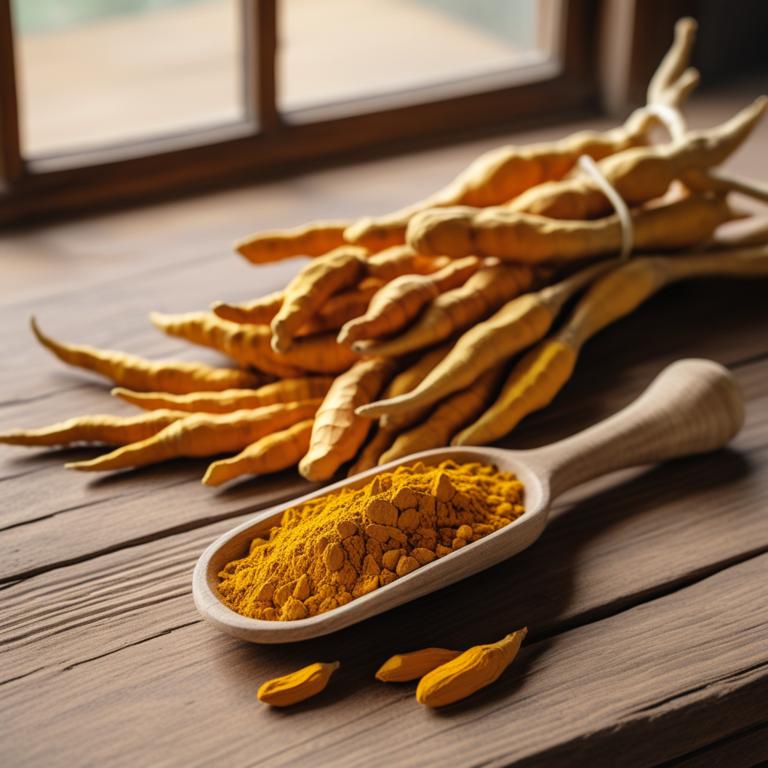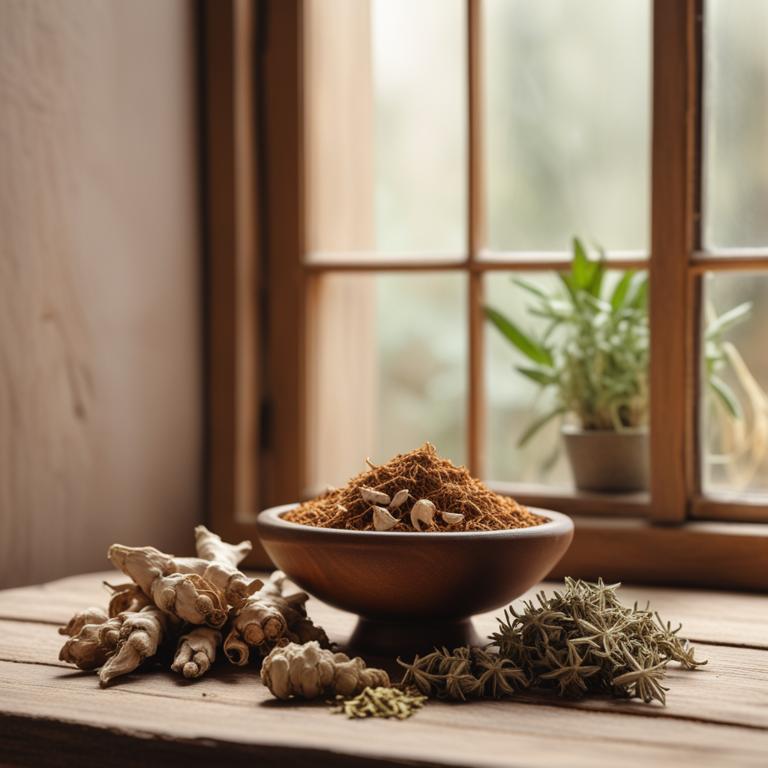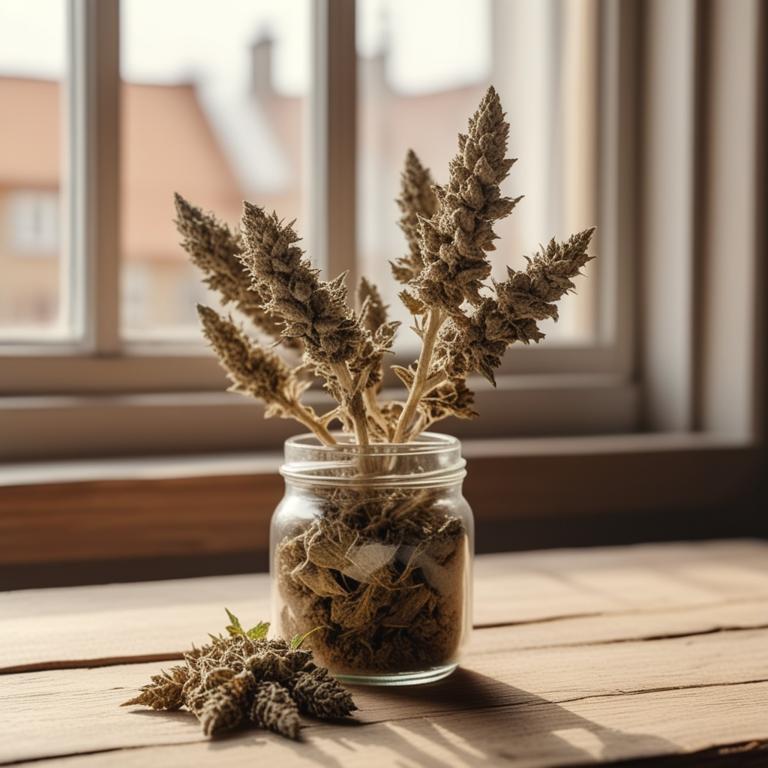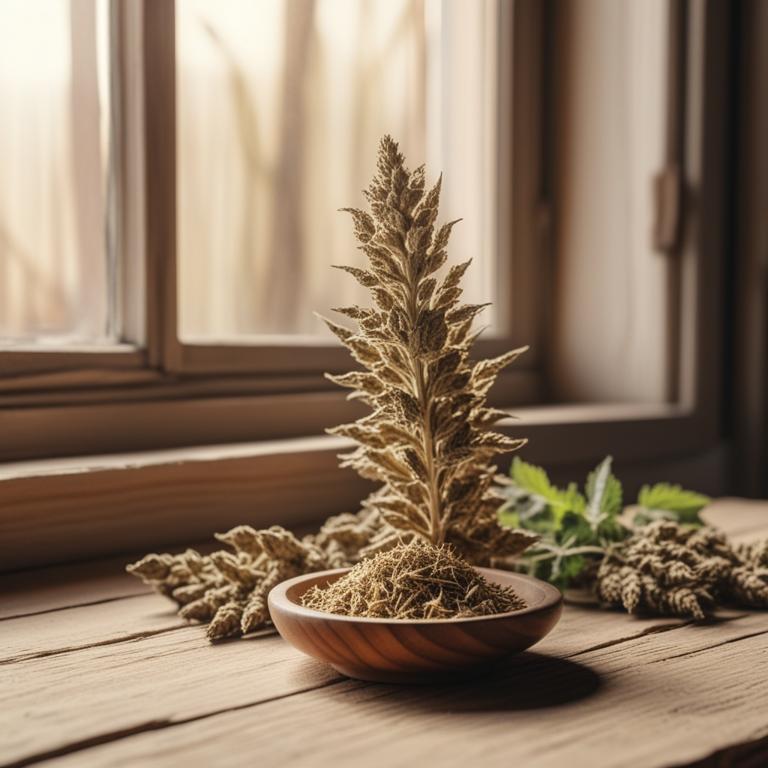Updated: Dec 1, 2024
Causes of Bladder Pain and Effective Herbal Preparations
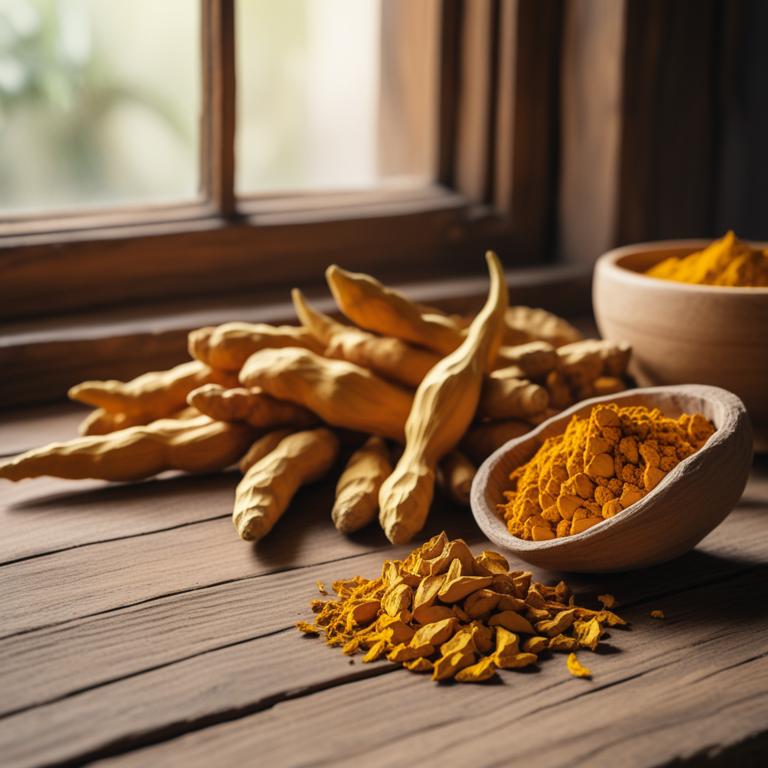
Bladder pain, also known as interstitial cystitis, is a condition that causes discomfort, pressure, and pain in the bladder area.
It can make everyday activities like urinating, eating, and even sex painful and difficult. Imagine needing to urinate frequently throughout the day, only to experience a burning sensation while doing so. This can disrupt your daily routine and affect your relationships. The causes of bladder pain are not fully understood, but it's thought to be related to a bladder lining that's too sensitive, allowing waste to leak through and irritate the bladder.
This irritation can be caused by various factors, such as infections, certain foods, and even hormonal changes. Fortunately, there are some herbal remedies that can help alleviate bladder pain. Herbs like uva ursi, corn silk, and marshmallow root have anti-inflammatory properties that can soothe the bladder lining and reduce pain. These herbs can be consumed as teas, capsules, or even taken as supplements. Uva ursi tea, for example, is made by steeping the leaves of the uva ursi plant in hot water, creating a soothing drink that can be consumed several times a day.
Similarly, corn silk tea is made by infusing the silky strands of the corn plant in hot water, providing a calming and anti-inflammatory effect.
Table of Contents
- What causes bladder pain in individuals?
- What benefits do herbs provide for the treatment of bladder pain?
- What are the main medicinal herbs that help with bladder pain?
- What are the most effective herbal preparations for treating bladder pain?
- Are there any herbs that you should avoid if you have bladder pain?
- FAQ
What causes bladder pain in individuals?
The main causes of bladder pain are several conditions that affect the bladder or urinary system.
One common cause is Urinary Tract Infections (UTIs), which occur when bacteria enter the bladder through the urethra, causing inflammation and pain. Interstitial cystitis, also known as bladder pain syndrome, is another cause, where the bladder's lining becomes inflamed, causing discomfort and pain during urination. Another cause is Overactive bladder, a condition where the bladder muscle contracts too often, leading to sudden urges to urinate and pain.
Urinary incontinence, the inability to control urination, can also cause bladder pain, as the bladder muscle may become overactive or weak. Additionally, Kidney stones can cause severe bladder pain, as the stones can become lodged in the ureter and block the flow of urine, causing pressure and pain in the bladder area. These conditions can be caused by various factors, such as bacterial infections, hormonal changes, or abnormalities in the bladder or urinary tract.
In some cases, the exact cause may not be known, but these conditions can be treated with medication, lifestyle changes, or surgery to alleviate the pain and discomfort.
What benefits do herbs provide for the treatment of bladder pain?
Using herbs for bladder pain can provide several benefits.
One of the main advantages is that they can help to reduce inflammation and irritation in the bladder, which can lead to a decrease in pain and discomfort. These herbs can also help to relax the muscles in the bladder, allowing for easier urination and reducing the need to strain or push.
Additionally, some herbs have antibacterial properties, which can help to prevent infections and keep the bladder healthy. By using these herbs, individuals may be able to reduce their reliance on medication and avoid the potential side effects that come with it.
Furthermore, many herbs have been used for centuries in traditional medicine, so they are often well-tolerated and gentle on the body.
What are the main medicinal herbs that help with bladder pain?
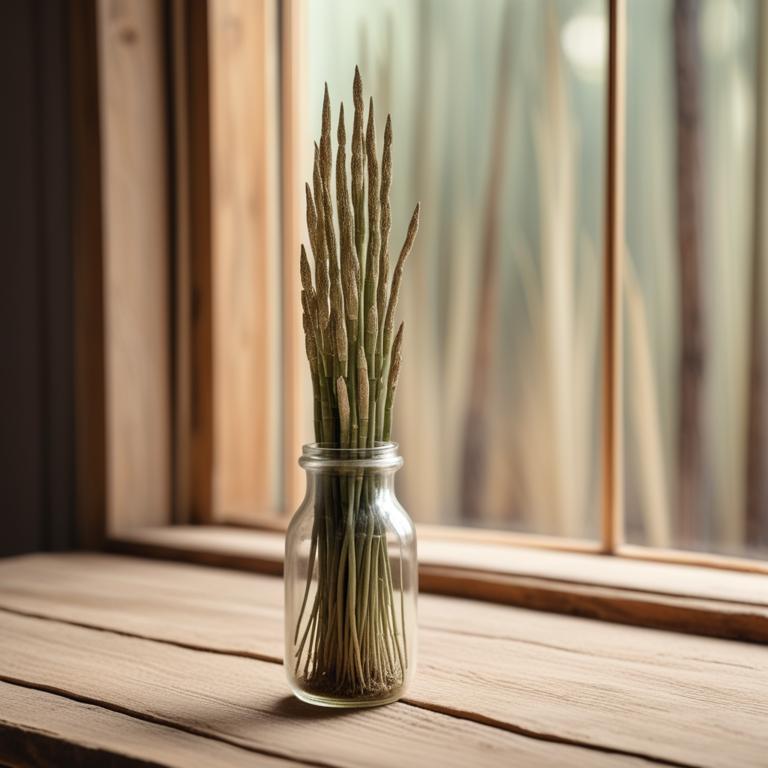
Herbs have been used for centuries to help with bladder pain, and many of them are still effective today.
One of the best herbs for bladder pain is Equisetum arvense, also known as horsetail. It's rich in silica, which helps to reduce inflammation and strengthen the bladder muscles. This makes it easier for the bladder to hold urine, reducing the need to urinate frequently. Another herb that's good for bladder pain is Plantago lanceolata, or plantain. It has anti-inflammatory properties that help to reduce swelling and ease pain. Plantain also helps to balance the body's natural fluids, which can become imbalanced when you have bladder problems. Urtica dioica, or stinging nettle, is another herb that's been used to help with bladder pain.
It has a compound called 5-alpha-reductase, which helps to block the conversion of testosterone into dihydrotestosterone, a hormone that can cause bladder problems in men. Urtica dioica also has anti-inflammatory properties that help to reduce swelling and ease pain. Vaccinium macrocarpon, or cranberry, is often used to help prevent bladder infections, which can cause bladder pain. It contains compounds that help to prevent bacteria from adhering to the bladder walls, reducing the risk of infection. This makes it a great herb to use if you're prone to bladder infections. Finally, Pimpinella anisum, or anise, is an herb that's been used to help with bladder pain and inflammation. It has anti-inflammatory properties that help to reduce swelling and ease pain.
Anise also has a compound called anethole, which helps to relax the bladder muscles and reduce the need to urinate frequently.
What are the most effective herbal preparations for treating bladder pain?
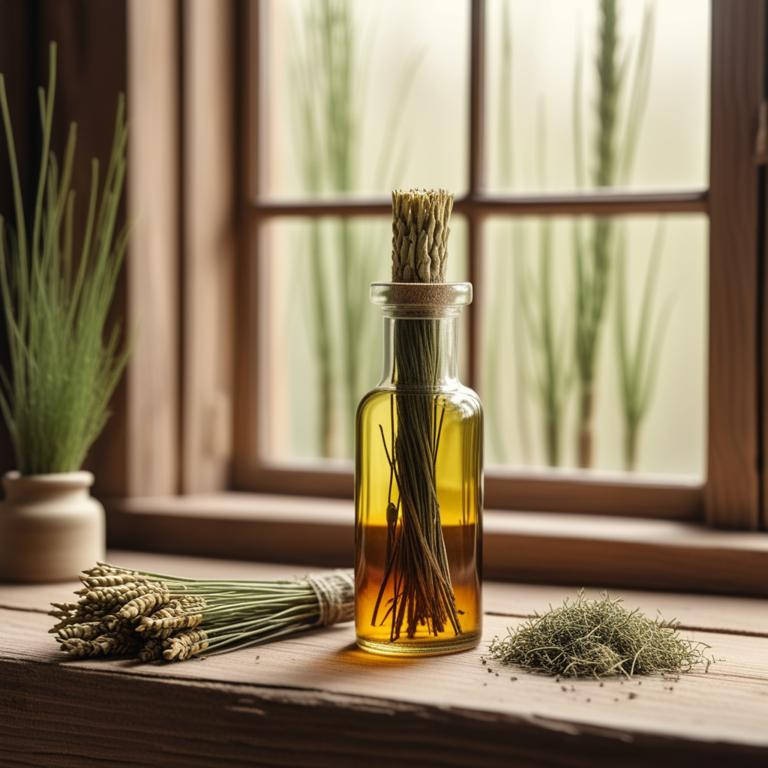
Herbal preparations can be a great way to relieve bladder pain.
One way to use them is through a decoction, which is like a strong tea made by boiling herbs in water for a longer time. This method is good for herbs that are tough and hard to break down, like wild yam and marshmallow root, which can help soothe and calm the bladder. Another way to use herbal preparations is through a tincture, which is a concentrated liquid made by soaking herbs in alcohol. This method is good for herbs that are hard to digest, like saw palmetto and uva ursi, which can help reduce inflammation and kill bacteria in the bladder. Infusions are another type of herbal preparation that can be used to relieve bladder pain.
This method is similar to a decoction, but the herbs are soaked in hot water for a shorter time. Infusions are good for herbs like corn silk and juniper berries, which can help reduce spasms and ease pain in the bladder. Some herbal preparations come in capsule form, which can be a convenient way to take herbs. Capsules are good for herbs like stinging nettle and goldenseal, which can help reduce inflammation and kill bacteria in the bladder. Finally, suppositories are a type of herbal preparation that can be inserted into the rectum to relieve bladder pain.
This method is good for herbs like aloe vera and chamomile, which can help soothe and calm the bladder from the inside out.
Additional Resources:
Are there any herbs that you should avoid if you have bladder pain?
If you're experiencing bladder pain, it's best to steer clear of certain herbs that might make things worse.
Berberis vulgaris, for example, contains compounds that can irritate the bladder and make urination even more painful. This herb is sometimes used to treat other urinary issues, but it's not a good idea to self-medicate with it if you're already experiencing discomfort. Similarly, Glycyrrhiza glabra, also known as licorice root, can increase the risk of kidney problems, which can be especially problematic if you're dealing with bladder pain.
Juniperus communis, or juniper berries, have a diuretic effect, which might seem helpful, but it can also cause more frequent and painful urination. Cinchona officinalis, also known as fever tree, contains quinine, which can damage the kidneys and worsen bladder problems. And Rauvolfia serpentina, a plant used to treat high blood pressure, can also irritate the bladder and make it harder to urinate comfortably.
It's generally best to avoid these herbs if you're dealing with bladder pain, as they can make your symptoms worse and potentially cause other complications.
FAQ
Are there any specific herbs that can prevent bladder pain?
Some herbs, like juniper berries and marshmallow root, may help with bladder pain.
Juniper berries have anti-inflammatory properties, which can soothe the bladder. Marshmallow root is known to calm irritation in the urinary tract.
These herbs can be found in tea or supplement form, but be sure to use them as directed.
Is it safe to use herbal remedies for bladder pain during pregnancy?
Using herbal remedies for bladder pain during pregnancy can be tricky.
Some herbs, like uva ursi, may help relieve pain, but they can also interact with other medications or worsen certain conditions. It's also unclear how they might affect the developing baby.
Proceed with caution and do your own research before trying any herbal remedies.
Are there any herbs that can reduce the frequency of bladder pain?
Some herbs, like saw palmetto and marshmallow root, may help reduce the frequency of bladder pain.
Saw palmetto is believed to soothe the bladder and urinary tract, while marshmallow root has anti-inflammatory properties that may help ease discomfort.
These herbs are sometimes used to alleviate symptoms of interstitial cystitis.
Can i combine different herbal remedies for bladder pain?
Combining herbal remedies for bladder pain can be a bit tricky.
Some herbs can interact with each other, so it's a good idea to start with small amounts and see how your body reacts.
For example, if you're taking uva ursi for bladder infections, you might want to try it with a small amount of marshmallow root to see if it helps with soothing discomfort.
Related Articles
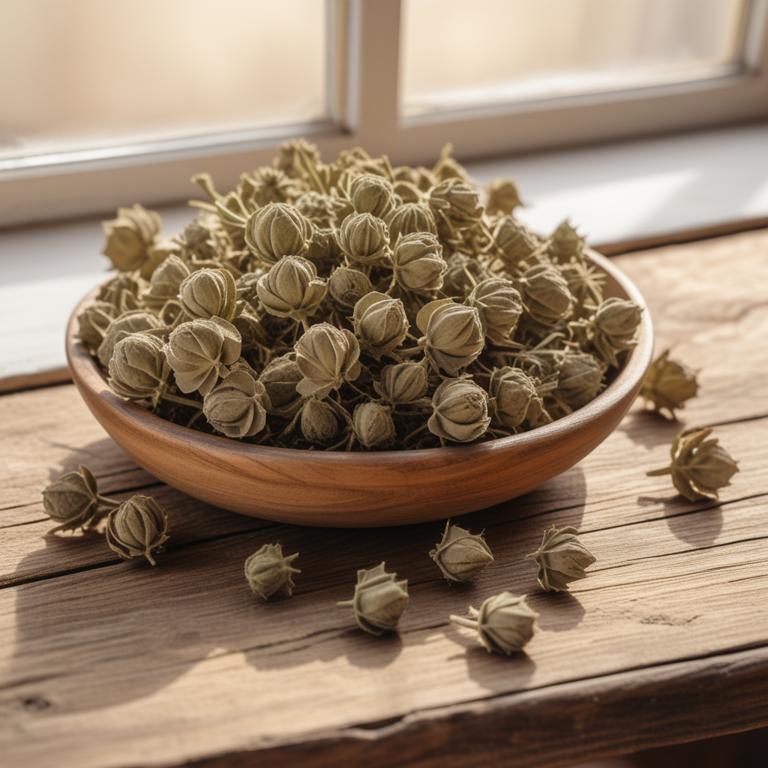
Urinary Calculus: Natural Causes, Herbal Remedies, and Prevention
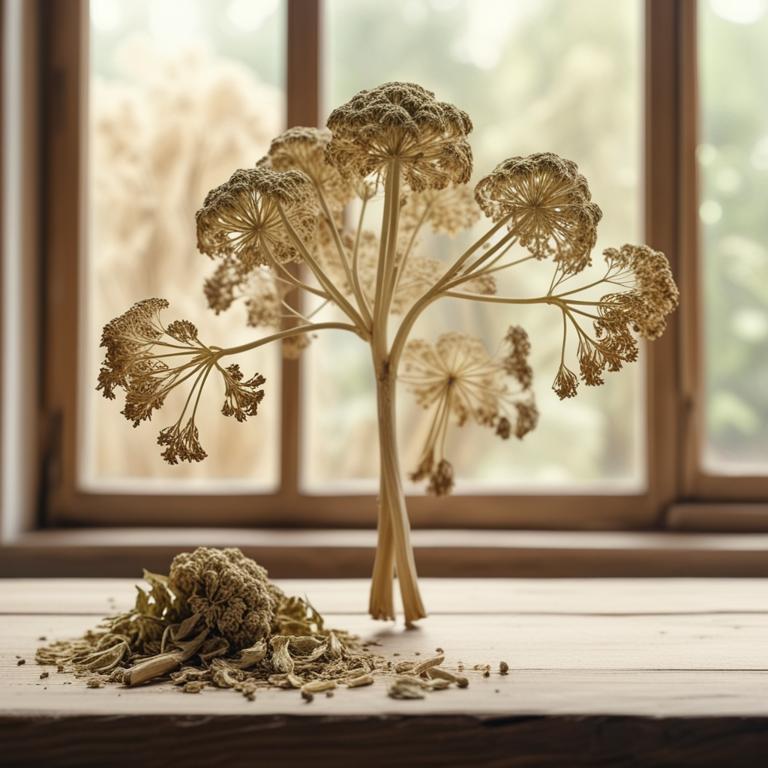
Fluid Retention: Causes, Herbal Preparations, and Holistic Treatments
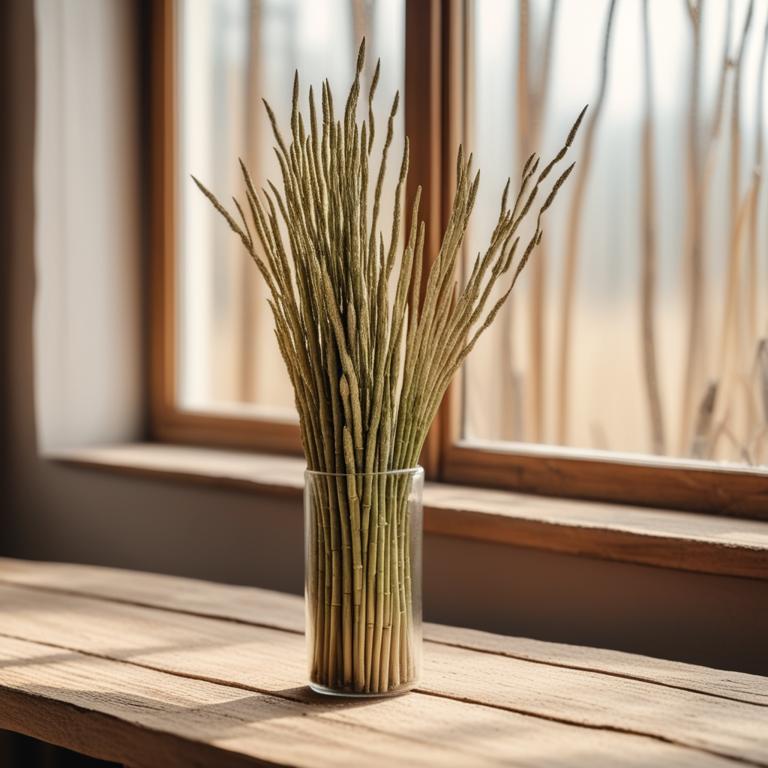
Hematuria: Exploring the Causes and Effective Herbal Remedies for Relief
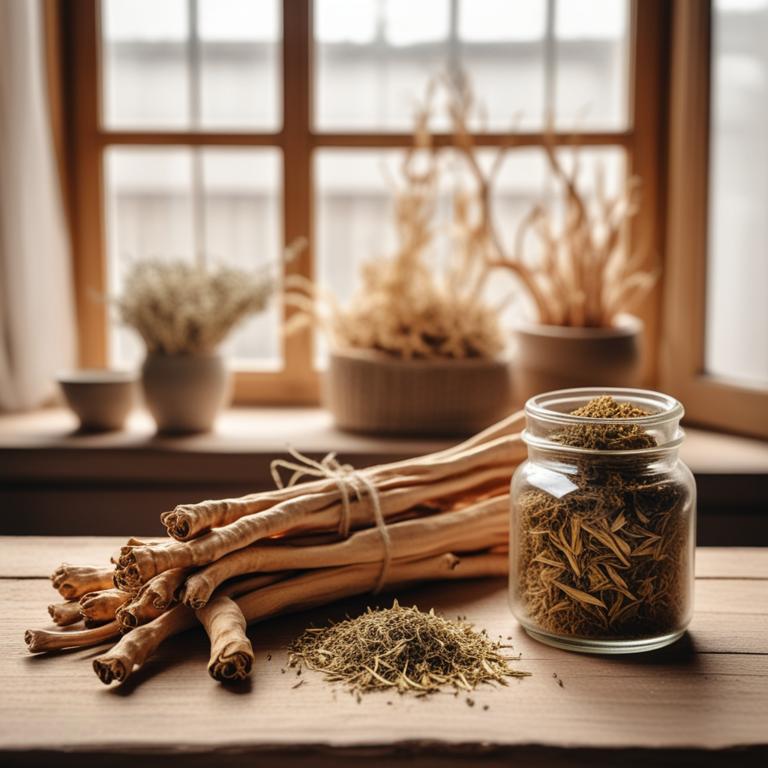
Prostatitis: Understanding the Causes and Using Herbal Preparations for Relief
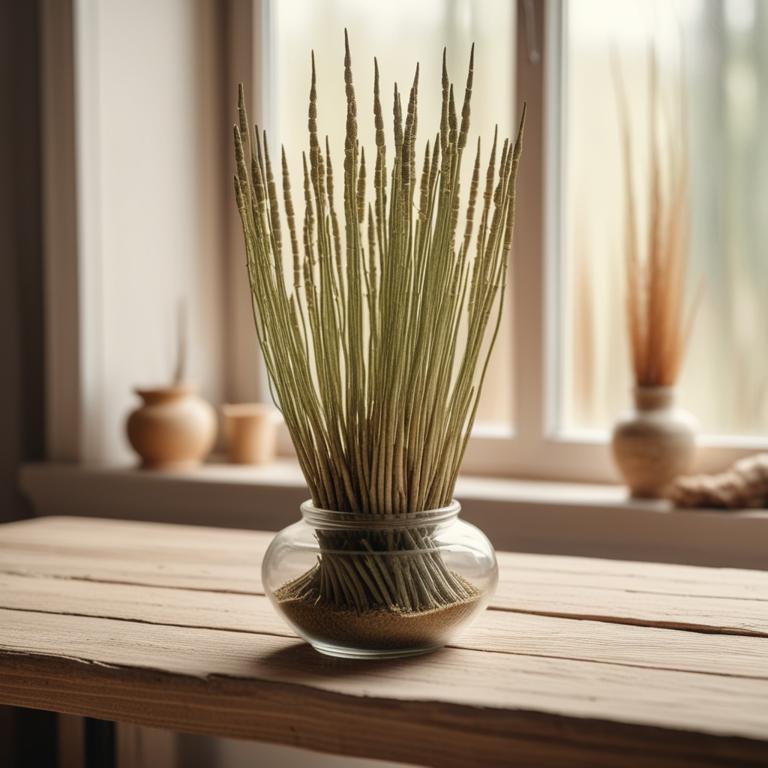
Causes of Bladder Pain and Effective Herbal Preparations
